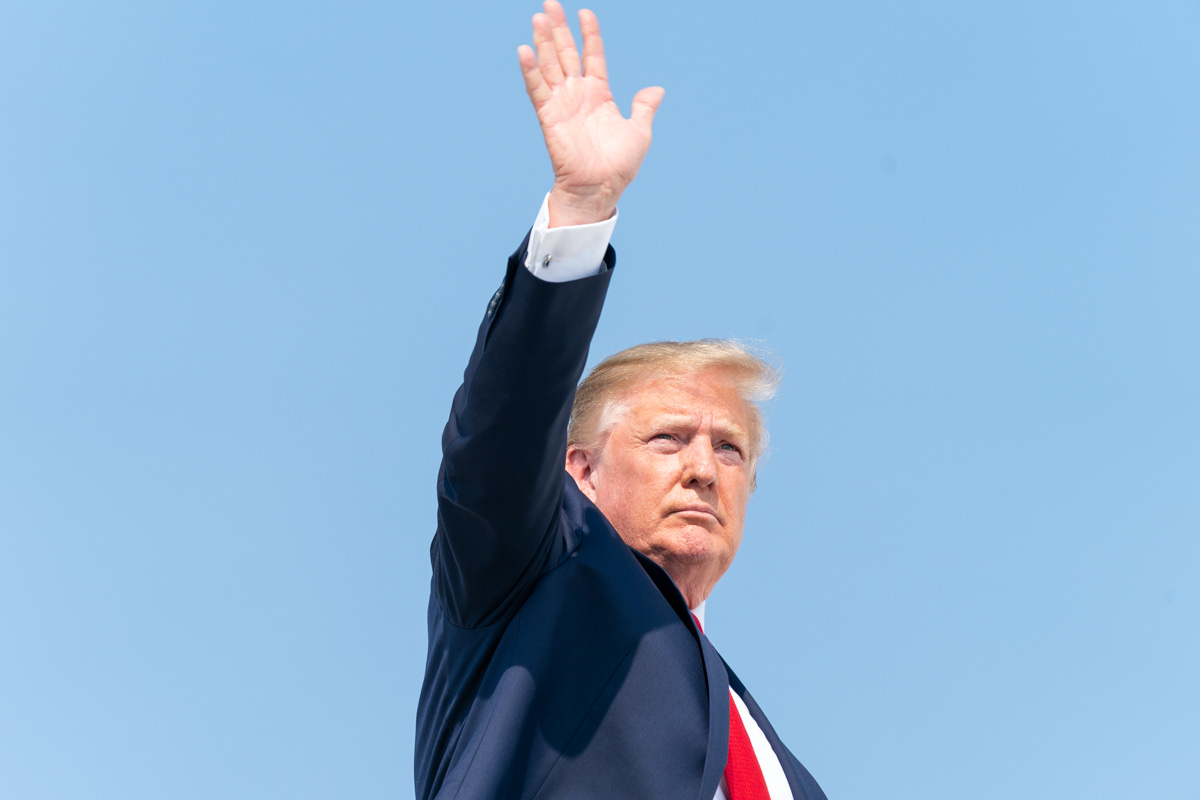Don't assume you'd stand up to Trump
It's easy to imagine yourself resisting authoritarianism — but everyone has their reasons not to
And another one. Harvard University yesterday indicated it was prepared to comply with Trump administration demands, including a payment of up to $500m, in order to end what The New York Times termed “its dispute with the White House” but could equally be described as an authoritarian shakedown.
It follows Columbia University’s decision to pay a $200m ‘fine’ and agree to heed administration policies, such as not maintaining programmes that “promote unlawful efforts” on diversity, equity and inclusion (DEI). In return, the university is supposed to secure the return of hundreds of millions of dollars in research grants. There is also, I’m afraid, an antisemitism angle.
Both institutions have been accused of failing in their duty to prevent the harassment of Jewish students. It is indeed a depressing reality that antisemitism has become pervasive and normalised across US campuses. But if there is anyone reading this newsletter who believes the Trump administration has a genuine concern for Jews or Jewish safety, meet me in the comments section: I have a stack of AAA-rated mortgage-backed securities to sell you.
Universities are of course far from the only institutions striking unequal deals with the White House. Earlier this month, Paramount Global paid $16m to settle a lawsuit filed by the president against CBS and its flagship news programme, 60 Minutes. This came as the company was seeking approval from the US government over its sale to Skydance, whose chief executive, David Ellison, has agreed to eliminate DEI programmes and establish an ombudsman to review any complaints of ideological bias involving CBS1.

The list goes on. New York law firm2 Paul, Weiss agreed to provide $40m of pro bono work that aligned with Trump administration priorities, in order to lift an executive order which would have affected the firm’s security clearances and banned its lawyers from federal government offices. Then there are any number of Republican elected officials, members of the judiciary and foreign leaders who have chosen to flatter rather than confront Trump.
Collective action or collective shrug?
Each capitulation is greeted with outrage online. And it is not difficult to see why. The Trump administration is attempting to force large swathes of civil society into submission. It would be nice if they stood up to him. There is also compelling logic to doing so:
Caving to threats rewards the administration with power and legitimacy it does not possess
Lawless bullies tend to ignore plea deals and come back with more extreme demands
It undermines those institutions prepared to stand up to Trump
But collective action is inherently tricky, especially in authoritarian regimes. Historian and friend of the newsletter (if only in my head) Stephen Kotkin explains:
“Let's suppose that I'm in a Stalinist regime with you… I come to you and I say, “This Stalin guy, he's wrecking everything. We got to take him down.” You agree with me. But you know what? You don't know. Maybe I've been sent by Stalin to test your loyalty. Maybe I'm provoking you to reveal your disloyalty. Maybe I'm not being sincere.
You agree with me, but instead of saying yes, let's do it, immediately you run to Stalin and you say that this Kotkin guy is talking behind your back about how we need to take you down. It’s self-preservation, you're going to preserve yourself because you don't trust. There's a lack of trust inside these dictatorships. If you knew that Stalin hadn't sent me for sure 100%, you would say, “You know, you're right. You got a point there. What can we do about this?”
The United States in 2025 is not the Soviet Union in 1937. Donald Trump has yet to establish a personal dictatorship. But the acquiescence of the last six months has been discouraging. It is natural to look on aghast. And it is comforting to think that you — yes, you — would stand up to him when given half a chance. There are brave people in the world. Some folks really did hide Jews in their attics. But most did not.
Absent a deal, Columbia faced losing around $1.2bn in unspent funding from the National Institutes of Health alone. Paramount executives had legal obligations to their shareholders. Law firms to their employees and clients. Charities to the people who depend on them. Individuals to their families. Each capitulation may represent a step up the ladder of authoritarianism — but everyone has good reason to do what they do.
This is not to say it is either cave or bust. Institutions could resist more effectively by acting in coalition, pursuing legal avenues, publicly exposing political coercion and funding resistance infrastructure to reduce system-wide vulnerabilities to authoritarian pressure. I do not pretend to have all (or any) of the answers. But one thing is clear: neither resistance nor capitulation is cost-free.
Some First Amendment you have there
Apropos of nothing, the journalist Chris Cook taught me that only lawyers have firms, everyone else works for a business or company





Finally someone refers to Stalin and not Nazi Germany..the methods the Trump administration is using and the behaviour of affected institutions are perfectly in line with Soviet style politics and Stalinism in particular..far more subtle than the explicitly murderous Nazis (a West-German having experienced also East Germany)
Hitler never got more than 33% of the vote but, as there was over eight parties, the Nazi vote was one of the highest. Needless to say when he got into power there were no more elections, only referendums. Trump is simply using the American Constitution to take over the State. With his nominees in every position of power how could a university stand up against him? No one in Britain could achieve this level of power in less than a year.